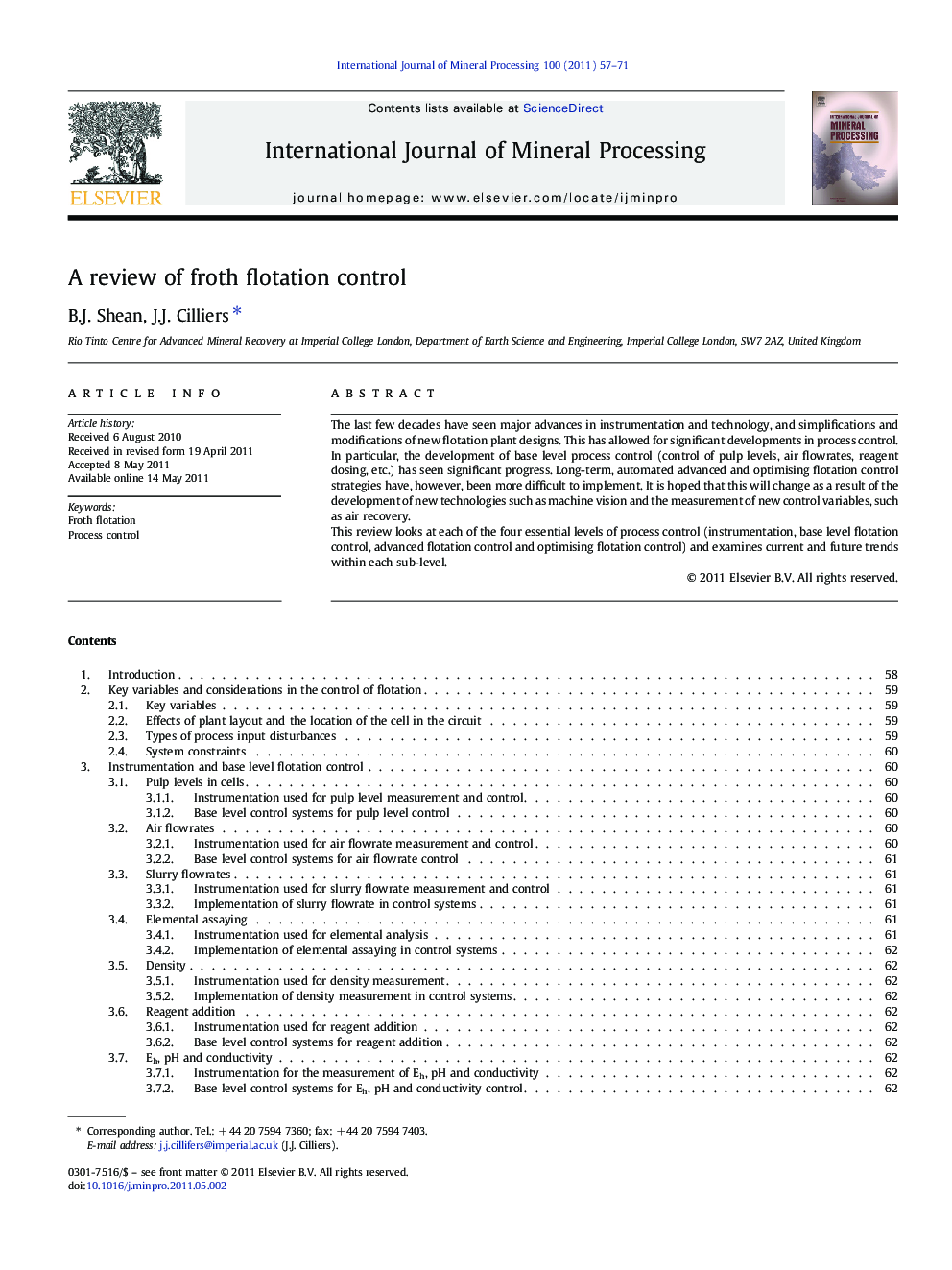| Article ID | Journal | Published Year | Pages | File Type |
|---|---|---|---|---|
| 214184 | International Journal of Mineral Processing | 2011 | 15 Pages |
The last few decades have seen major advances in instrumentation and technology, and simplifications and modifications of new flotation plant designs. This has allowed for significant developments in process control. In particular, the development of base level process control (control of pulp levels, air flowrates, reagent dosing, etc.) has seen significant progress. Long-term, automated advanced and optimising flotation control strategies have, however, been more difficult to implement. It is hoped that this will change as a result of the development of new technologies such as machine vision and the measurement of new control variables, such as air recovery.This review looks at each of the four essential levels of process control (instrumentation, base level flotation control, advanced flotation control and optimising flotation control) and examines current and future trends within each sub-level.
Research highlights► Literature of instrumentation used in flotation control. ► A review of base-level (regulatory) process control in froth flotation processes. ► A review of stabilising flotation control, and optimising flotation control methods. ► Review of implementation of ‘newer’ technologies into flotation process control including machine vision and froth stability.
